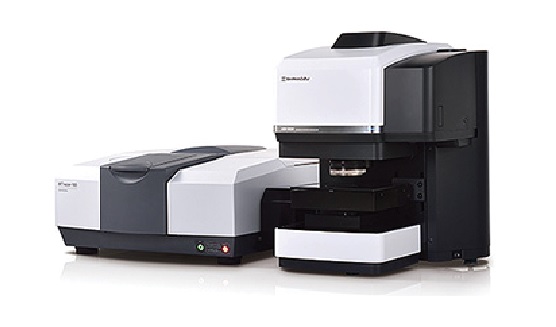
SHIMADZU AlMs to provide analysis systems for all users.
The system is automated to ensure all steps involved in micro analysis can be performed quickly and easily.
All our accumulated know-how in micro analysis is concentrated in the AIM-9000 to strongly support analysts.
A Series of Smooth Micro Analysis
Three steps for micro analysis “Observe”,”Measure”,and”Analyze”are automated.
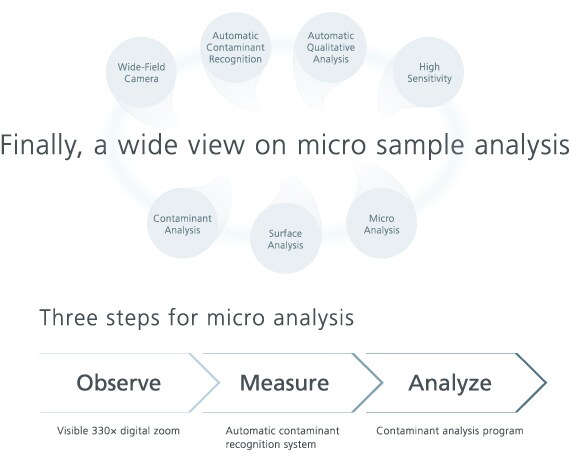
Load Sample
Loading Samples Is Easy
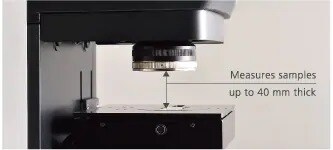
Pressing the [Eject Sample] button makes it easy to load and remove samples by automatically lowering the stage and switching the objectives to expand space. Furthermore, the lower Condenser mirror can be removed to enable reflectance/ATR measurements of samples up to 40 mm thick.
Look for the Item to Be Measured
Quickly Determine the Measurement Position – Wide-Field Camera* and Microscope Camera –
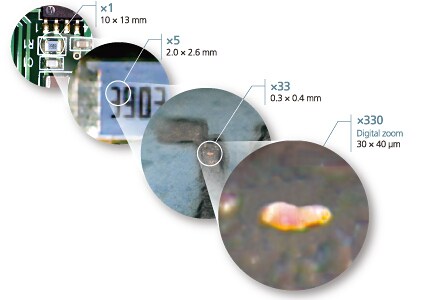
Shimadzu’s proprietary wide-field camera and microscope camera help observe samples efficiently. In addition to observing a large area up to 10 x 13 mm, the wide-field camera also supports variable digital zooming. Furthermore, by sharing positional information with the microscope camera, it achieves a digital zoom function capable of zooming to a magnification of about 330x for observing extremely small areas as small as 30 x 40 µm. (The microscope camera supports variable digital zoom magnifications up to 10x.)
* The wide-field camera (P/N 206-32605-41) is optional.
Determine Where to Measure, and Measure Automatically
Automatically Determine Measurement Positions – Automatic Contaminant Recognition System –
A function that automatically recognizes contaminants is included standard. The analyst simply clicks one button and the software automatically recognizes the contaminant. It even determines the optimal aperture size and angle in only one second. Two models are available: the standard model and a model optimized for extremely small areas. Users can choose the best model for their application. The automatically determined measurement positions can either be measured without editing or the analyst can add or delete measurement positions. Sample images are stored into the measured spectra automatically. The sample and measurement positions can be easily identified later.
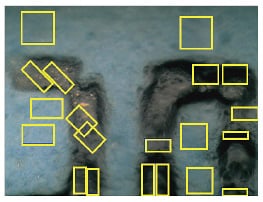
Standard
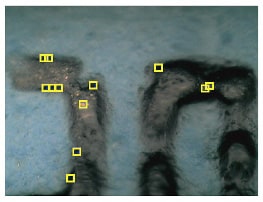
Micro
Identify the Cause of Failures
Automatic Identification of Contaminants – Contaminant Analysis Program –
The contaminante analysis program-the functionality for automatically qualifying contaminants is included as a standard feature in LabSolutions IR software. Measured spectra using AIMsolution can be loaded directly into LabSolutions IR and analyzed. The contaminant analysis program identifies measured contaminants with high precision using a spectral library for substances commonly detected as contaminants in combination with Shimadzu’s proprietary identification algorithm (patent pending).
Contaminant Analysis Program Features

It includes spectra for over 550 inorganic substances, organic substances, and polymers commonly detected in contaminant analysis.

Searching for spectra, determining matches, and preparing reports are all automated.

It not only searches for spectra, but it also applies a special algorithm focused on spectral characteristics.

Even for contaminants that are mixtures, it searches for primary and secondary components and also displays the probability of candidate substances.
Fully Support Identification of Contaminants
– Contaminants Library and Thermal-Damaged Plastics Library* –
Contaminants Library (P/N 206-33179-91)
This unique library was created by Shimadzu especially for analyzing contaminants in tap water and food products. The library includes information about samples actually collected as contaminants and service parts commercially marketed for tap water applications. It also includes a collection of X-ray fluorescence profiles (PDF files). Consequently, it can significantly improve the precision of contaminant searches. Unlike the previous libraries, this is a mixture library that covers the extensive knowledge and experience necessary for qualitative analysis.
Thermal-Damaged Plastics Library (P/N 206-33039-91)
This unique library includes information about plastics that have degraded due to oxidation by heating. The library is especially useful for analyzing degraded contaminant substances, which are common.
| * | Shimadzu create the library using spectra obtained by Hamamatsu Technical Support Center, Industrial Research Institute of Shizuoka Prefecture. |
Functionality That Is Simpler and More Convenient to Use
Perform Infrared Measurements Smoothly While Viewing Visible Images
– Visible/Infrared Dual View System –
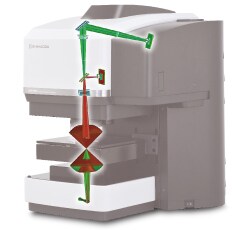
Infrared spectra can be measured while checking a visible image of the sample. Spectra can be measured while confirming the position of contaminants, which avoids the trouble of switching back and forth between the visible light and infrared light.
Used in combination with the tiling function, visible observations and infrared measurements can be performed anywhere within the stage operating range, which does not need to reposition the sample.
Image view of the visible light and infrared optical path
Green light: visible light optical path
Red light: infrared optical path
Visualize Components – Chemical Imaging* –
The invisible distribution of chemicals can be visualized based on peak height or area, multivariate analysis (PCR/MCR), or spectral similarity to target spectra.
Chemical image of pharmaceutical powder
Rolled pharmacuetical products with a diamond cell and then mapping measured.
Right figure represents the distribution of powder components, such as lactose, lipid, and cellulose.
Color display can be switched freely between single-color and multi-color.
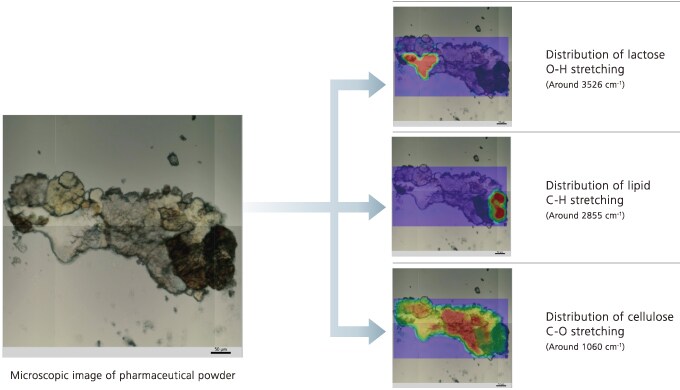
* Visualizing chemicals requires an optional mapping program (P/N 206-98427).
Perform Ultra Micro Analysis – Best-in-Class Signal-to-Noise Ratio –
The AIM-9000 optimized for measuring extremely small areas. The AIM-9000 achieves 30,000:1 signal-to-noise ratios, the best in its class. Consequently, it can quickly obtain excellent spectra from even extremely small contaminants.
Transmission measurement of polystyrene beads
A ø10 µm polystyrene bead was measured by transmittance method. Low noise and high quality spectrum of very small sample was obtained with only small number of scan.
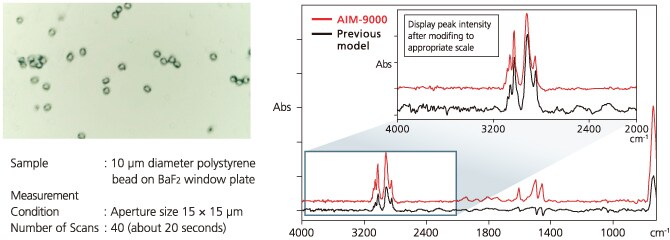
Perform High-Sensitivity ATR Measurement – Samples with High Refractive Index –
The Ge prism (P/N 206-32600-41) has an anti-reflective coating that provides high sensitivity for over 50% higher throughput. Due to a steeper incident angle for the infrared light, compared to the previous model, the AIM-9000 is able to acquire excellent distortion-free ATR spectra even when measuring samples with a high refractive index, such as black rubber.
ATR measurement of black rubber
An acrylonitrilebutadiene rubber (NBR) with 50wt% carbon was measured by Ge-ATR objective. A clear peak of C=C-H out-of-plane bending mode was obtained at 970cm-1, which was strained by conventional ATR objective.
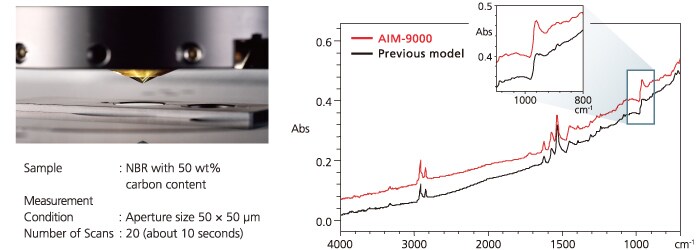
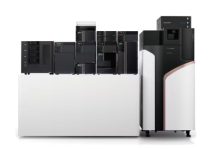
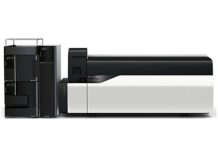
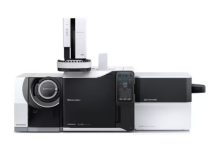
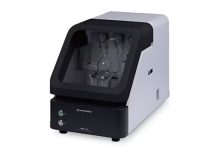
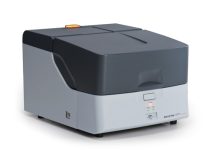
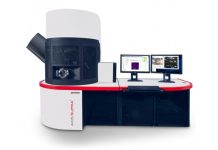

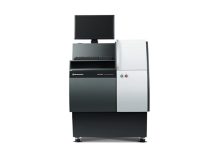
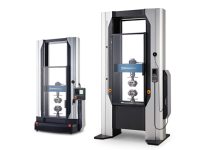
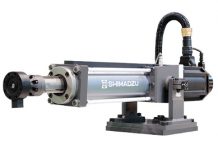
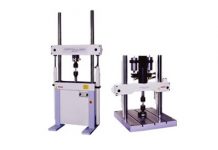

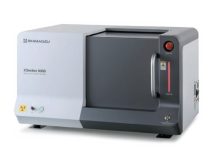
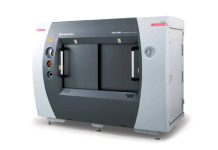
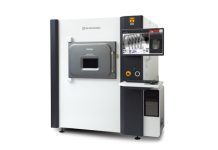
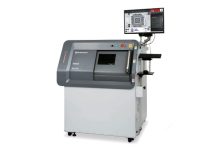

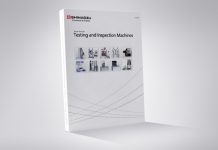
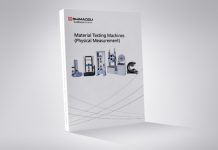






Now, I use IRAffinity-1S with ATR to analyze material. But I faced a problem of analysis small contaminate.
It seem AIM able to analyze small area, is it?
Could you please provide me related detail of this analyzer and example report that able to show its feature?
Is there any limitation of using this analyzer? Please explain to me.
Can I order only AIM-9000 unit to connect to my IRAffinity-1S?
And how much is it, just roughly?